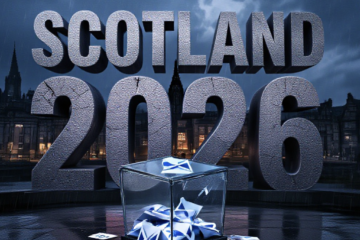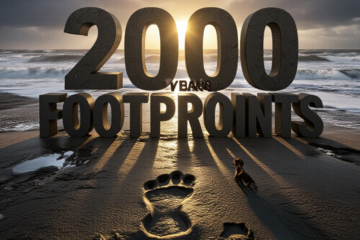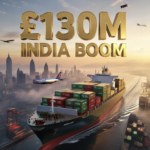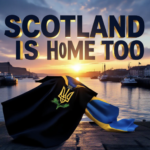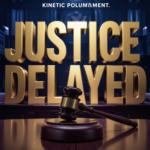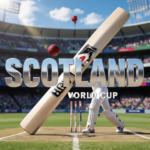Scotland’s government has taken a bold step against the ongoing Gaza conflict by ending public funding for arms companies that supply Israel. First Minister John Swinney announced the move on September 4, 2025, in parliament, citing concerns over genocide risks and calling for the UK to recognize Palestine right away.
This decision comes amid growing global pressure on Israel after nearly two years of fighting in Gaza. It aims to align Scotland’s policies with international law and humanitarian values, while urging broader action from the UK.
Details of the Funding Pause
Scotland will stop new grants and investments to defense firms linked to Israel. Swinney made the announcement as a Palestinian flag flew over government buildings in Edinburgh.
The pause affects bodies like Scottish Enterprise and the Scottish National Investment Bank. Companies must now prove their products do not support nations accused of genocide.
This shift follows reports that firms such as BAE Systems, Leonardo, Raytheon, and Thales received over 10 million pounds in public funds from 2016 to 2020. An estimated 1 million pounds more went out since the Gaza war started in October 2023.
Swinney stressed that defending Scotland and Europe remains a priority. But he argued that public money should not fuel potential war crimes.

Background on Gaza Conflict
The Gaza crisis escalated after Hamas attacks on Israel in October 2023, killing about 1,200 people. Israel’s response has led to over 60,000 deaths in Gaza, according to local health officials.
Scotland’s move reflects rising international scrutiny. The International Court of Justice has warned of genocide risks in Gaza, influencing Swinney’s stance.
Recent events include Israel’s military operations displacing millions. Aid groups report severe shortages of food, water, and medicine in the region.
Scotland joins other nations and groups pushing for accountability. For instance, several European countries have limited arms exports to Israel in the past year.
Key Companies and Past Funding
Several major arms makers with Scottish operations are impacted. These firms have long benefited from government support for jobs and tech development.
Here is a breakdown of notable funding:
| Company | Estimated Funding (2016-2020) | Products Supplied to Israel |
|---|---|---|
| BAE Systems | Over 3 million pounds | Fighter jet components |
| Leonardo | Around 2.5 million pounds | Radar systems |
| Raytheon | About 2 million pounds | Missile technology |
| Thales | More than 2.5 million pounds | Surveillance equipment |
This table shows how public money has supported these companies. The pause aims to prevent further ties amid the conflict.
Experts note that Scotland’s economy includes a strong defense sector. Ending funding could affect local jobs, but supporters say ethical concerns outweigh economic ones.
Humanitarian Measures Announced
Beyond funding cuts, Scotland plans to help Gaza victims directly. Swinney pledged free medical care for 20 injured children from the region.
The government will also spend 400,000 pounds on a deployable hospital for Gaza. This adds to ongoing aid efforts.
These steps build on Scotland’s history of supporting global causes. For example, it has provided refugee aid in past conflicts like those in Ukraine and Syria.
Aid organizations praise this as practical solidarity. It addresses immediate needs while pressuring for a ceasefire.
Reactions from Stakeholders
Reactions poured in quickly after the announcement. Humanitarian groups welcomed it as a strong stand.
Oxfam Scotland called it a vital act of solidarity that must roll out fast. Other activists urged similar moves across the UK.
Critics, including some Jewish community leaders, warned it might heighten tensions. They fear it could endanger Scottish Jews amid rising anti-Semitism reports.
Opposition politicians in Scotland mixed praise with calls for more action. Some pushed for a full trade freeze with Israel.
On social media, users debated the move’s impact. Many praised Scotland for leading on ethics, while others questioned its economic fallout.
Broader UK and Global Implications
Swinney urged UK Prime Minister Keir Starmer to scrap the UK-Israel trade deal. He also called for immediate recognition of Palestine.
The UK has stepped up criticism, with Foreign Secretary David Lammy labeling Israel’s actions an affront to British values. London may recognize Palestine soon if conditions like a ceasefire are met.
Globally, this fits into wider boycotts and sanctions. Countries like Norway and Spain have recognized Palestine in 2024, pressuring others.
Experts predict ripple effects on arms trade. It could inspire similar policies in other regions, reshaping international relations.
The decision highlights tensions in devolved UK governance. Scotland often takes independent stances on foreign issues, clashing with Westminster.
As the Gaza conflict continues into 2025, Scotland’s actions offer a model for ethical foreign policy. Readers seeking more ways to engage can share this article or comment below with their thoughts on global responses to the crisis.


